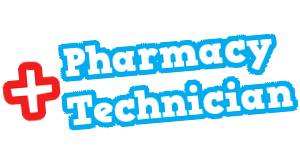Understanding the Pharmacy Technician Code of Ethics
When a person decides to become a pharmacy technician, a decision is being made to assist people in obtaining quality, professional health care. A technician assists pharmacists in a variety of functions including working directly with patients, dispensing and preparing prescriptions and medical equipment and verifying prescription information. Whatever the task may be, the technician is required to comply with the Pharmacy Technician Code of Ethics which was developed by the American Association of Pharmacy Technicians.
History of the Code of Ethics
Over the past two decades the role of the technician has changed and progressed to include more and more duties and responsibilities. As the nation faces a shortage of pharmacists, the use of technicians has skyrocketed in the industry. Technicians are used largely in retail pharmacies, but they are also employed in hospitals and nursing homes. They also fill a variety of government jobs. As technicians became more heavily relied upon, the industry began to cry out for reform and regulation of the job duties, training and continuing education.
In 2002, many organizations came together to insist upon standardization of the industry. While this has not taken place at a national level, there have been many advances in making the profession more regulated. Certification is required, but the exact educational requirements vary by program and state. The certification is issued by the Pharmacy Technician Certification Board. This board also monitors adherence to the code of ethics established for the profession.
What it Means for Pharmacy Technicians
This code is similar to the Code of Ethics for pharmacists, requiring a person to work carefully to ensure the safety of patients. There are ten points contained in the code, concentrating on patient safety, continuing education and professionalism. The first several points concentrate on safety. The patient should always be the first priority.
Preparing medication for a person gives a technician a life-and-death responsibility. Mixing the wrong concentration of a solution can lead to a final product that causes complications and possibly death. Not properly monitoring all the medications a patient is taking can lead to adverse reactions. Only medications and equipment of good quality should be dispensed, with any violations reported accordingly.
The technician should remain professional and honest at all times, maintaining compliance with all laws and regulations. This includes assisting the pharmacist, fellow employees and patients to the best of their ability. In order to do this, a technician needs to stay abreast of all new updates and take advantage of continuing education opportunities. Technology and treatment are constantly changing and advancing, and it is important to stay well informed to best serve patients.
Technicians need to support organizations that promote standards in the pharmaceutical industry. They need to refrain from engaging in illegal activity that could tarnish the image of the profession. Protecting patient data and confidentiality is also of critical importance.
Violations of the Code of Ethics
Violations of the Code of Ethics are handled by the Pharmacy Technician Certification Board if the technician is certified. Reports can be made by co-workers, patients or anyone who witnesses an ethical violation. There is a formal process in which the complaint is reviewed for merit and forwarded to a Resolution Officer and then to the Conduct Review Committee if necessary. During the course of the investigation an order can be issued to prohibit the technician in question from performing all or some of their duties as a technician.
If the technician is found to have violated the code their certification can be involuntarily suspended or revoked and they can be made ineligible for re-certification. Less extreme sanctions include public reprimands, requirements to cease from certain activities, private reprimand and censure, certification probation and temporary suspension of certification. Some case decisions can be appealed if certain criteria are met.
